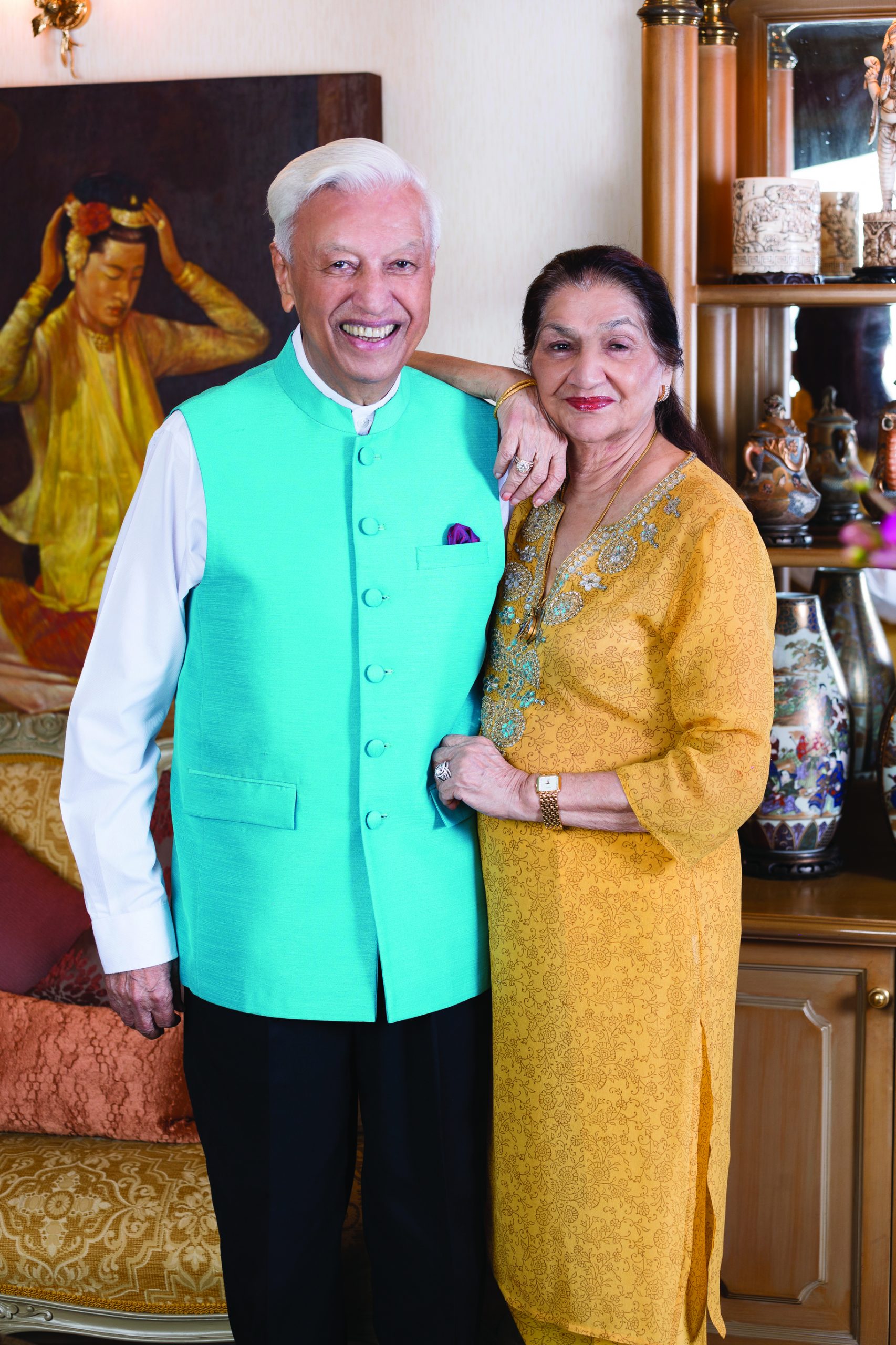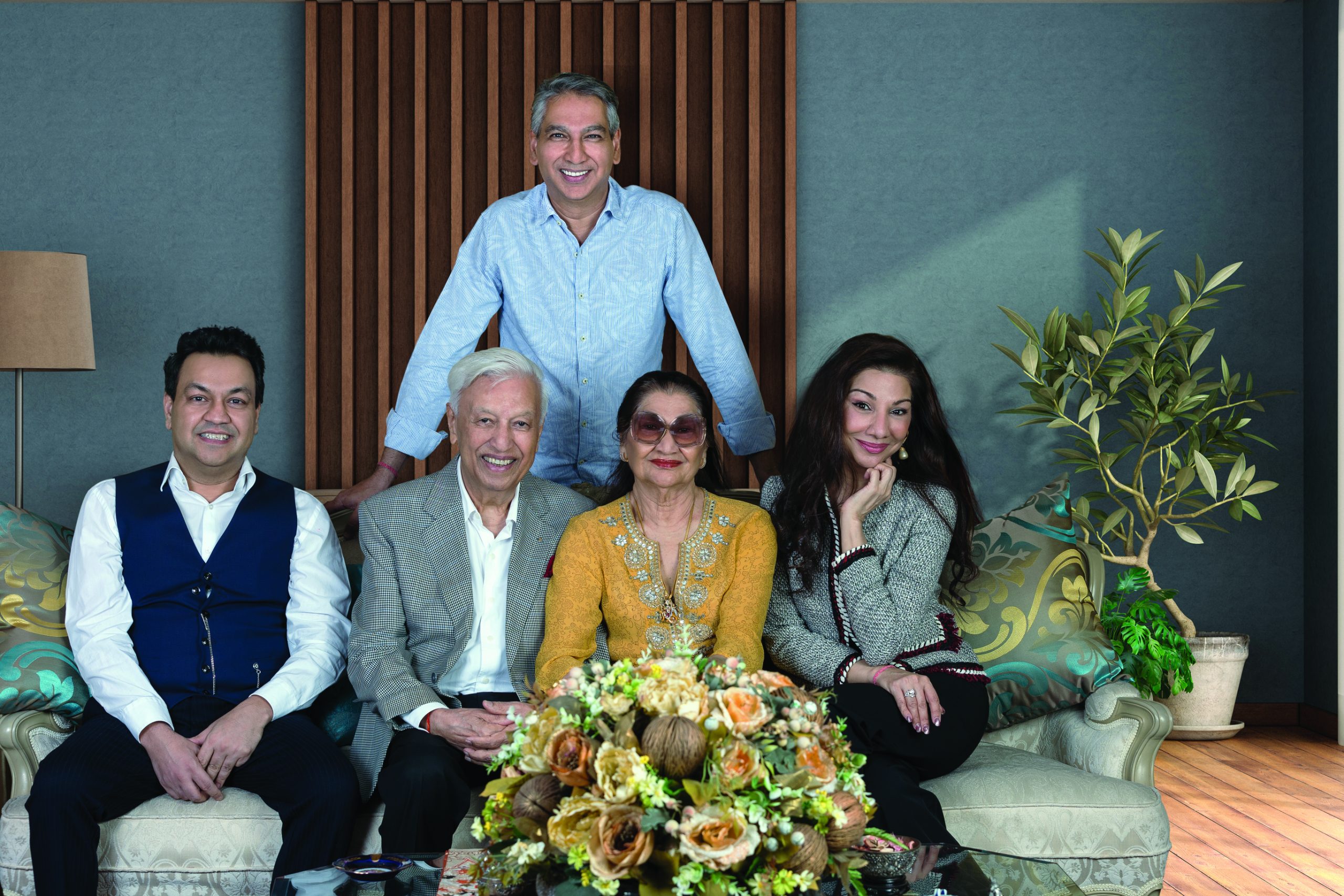Perseverance and a commitment to the community are the key to their bespoke success.
By Aiden Jewelle Gonzales
When Vashi Purswani, patriarch of the Purswani family, founder and chairman of the renowned Thai Martin Group, and giant of the Sindhi business community, agreed to share his story with Masala, I was not unaware of the honour he was affording us. An affable man whose humble mien hides keen ambition and a heart for hard work, he greets us with a self-deprecating smile. “I’m not big on publicity,” he tells me, and I rush to assure him that all we want is to share the legacy of a stalwart businessman who was instrumental in growing the Sindhi community in Thailand.
Prior to coming to Thailand in 1964, Vashi’s family business was trading linen and silver, mostly based out of Cairo and Alexandria in Egypt. His parents,Tikamdas and Roopmani, were from Hyderabad, Sindh. “They were earning a decent living from the business,” Vashi recalls, “before it was nationalised in the early 1900s by President Nasser. We lost everything in Egypt.” After that setback, Vashi’s father was nevertheless undeterred, and they moved to Lucknow where he set up a small food agency. Vashi himself, after completing his education in Lucknow Christian College, brought his family’s entrepreneurial spirit to Hong Kong, where he learned the tricks of the trade from selling Korean products to American army forces in Korea, Japan, and the Philippines. It was at that time that an opportunity arose that, little did he know, would change not only his life but that of an entire community.
“At the start of the Vietnam War, a good friend and customer gave me purchase orders worth USD 40,000 to supply textile products from Bangkok to Vietnam,” he tells us. “During that time, my good friend Martin, who was an American G.I., said Thailand was the next up-and-coming place for business in the Asia Pacific region.” Newly-married to his wife Roop, Vashi seized on the opportunity to set up a business for himself, and the rest is history.
What was the biggest challenge that you’ve faced in Thailand, and how did you overcome it?
Obstacles abounded as soon as I decided to settle in Thailand. At that time, I had many fears: fear of having to provide for a family as a newlywed; fear of not having any money or business; and fear of the state of affairs in the country, as Thailand back then had a military regime and many Indians who had shifted from Myanmar were giving dire warnings about the risks associated with doing business in the country.
However, I was a headstrong, business- minded youngster who, having seen the challenges in Hong Kong, felt that obstacles could be overcome by hard work and building good local relationships. The initial support and friendship of a few Indian families, and the business orders that Martin had passed my way from the U.S. Airforce base, kept things going in a positive direction.
As I grew the business and ventured into larger investments, through partnerships in property or industrial sector, the constant volatility in the country’s financial markets was a huge obstacle, causing despair and anxiety many times over the decade. However, thanks to a strong network of good relationships and friendships, and our strong bond as a family, we overcame these challenges.
That’s when I realised that we had to do only as much as we can afford to without losing sleep, health and family. If these can be managed well, the number of obstacles, barring an act of God or epidemic, will drop considerably.
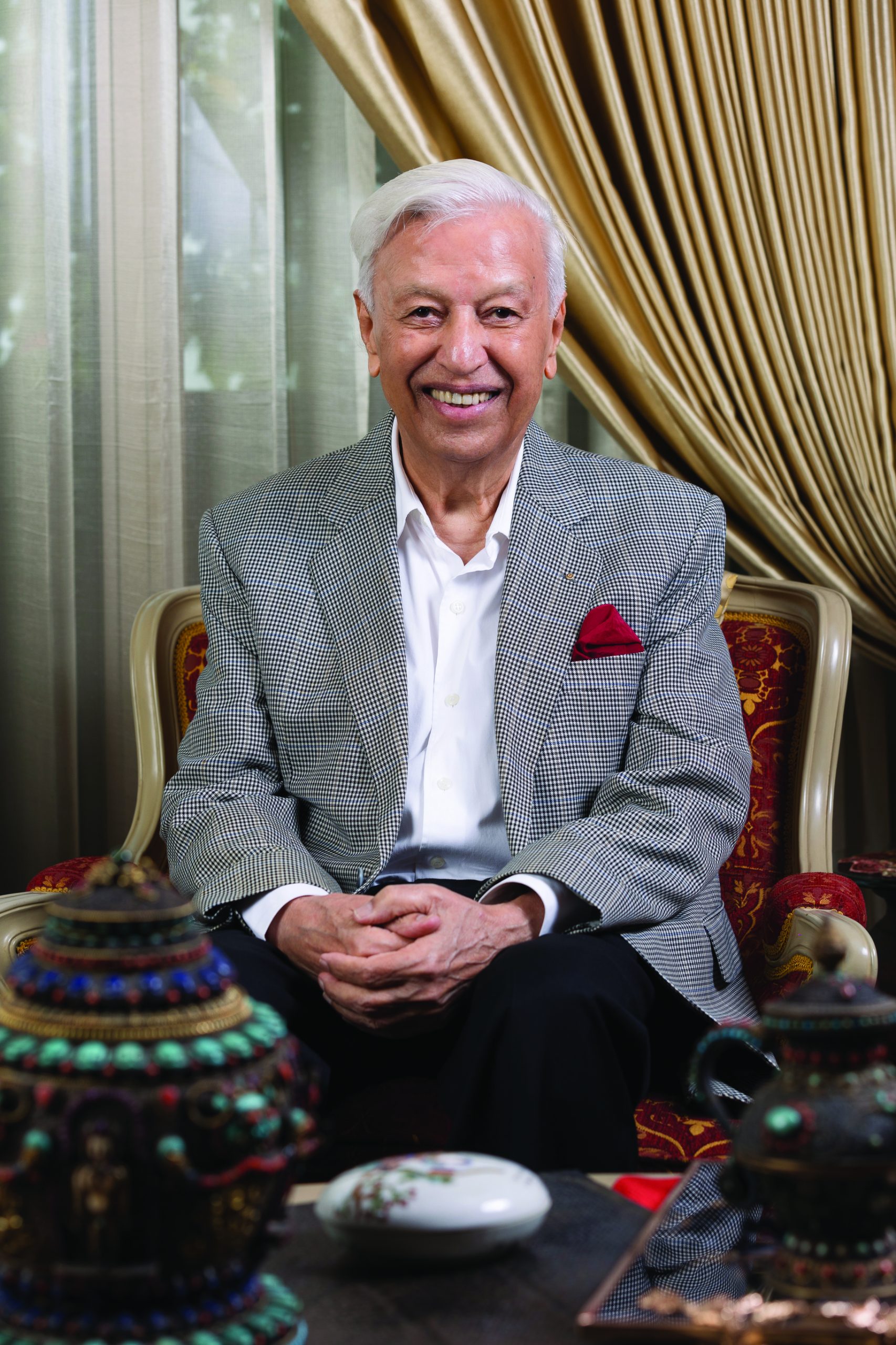
What was the impetus behind starting the Thai Martin Group, and what do you attribute its success to, including the fact that its portfolio now spans an array of diverse ventures and industries?
At the age of 25, I had been working for five years in Hong Kong towards owning a tailorshop, and I was staying in a cramped apartment of 900 square feet with my partner’s family. I remember thinking, ‘life can be better than this.’ After getting married in 1963, I realised that I couldn’t bring Roop to Hong Kong to live in the situation I was in. It just wouldn’t work. By chance, that’s when the opportunity arose to set up a tailor shop in Thailand. As soon as I had set up a shop and had sorted out a house for us, I brought Roop and my newborn son, Nash, to Bangkok.
Over the next 20 years, I set up over 12 Martin Tailor shops across the country, which was at the time considered to be the largest franchise in the tailoring business here. I felt it was quite an achievement coming from a background of earning Rs 80 per month when employed in Hong Kong. I brought in young new Sindhis to manage the growth of the business, and we built it up to be great. We all grew closer as colleagues, and many times I reflect that it was this warmth andenjoyment in our work that helped the business to flourish.
As our children came of age and graduated from university, their interests were more directed to the property, manufacturing and trading side of the business. By that time, I had invested in a few Indian industrial ventures that were setting up base in Thailand, which I realised would become the next wave of growth in this country. In keeping with the initial Martin Tailor shop name, my children and I decided to name the investment holding company, Thai Martin Trading Co., Ltd., and we sold off the tailor shops to my colleagues and wished them well.
The next 20 years were a rollercoaster ride of ups and downs that have made or broken entire families and businesses. Looking back on those glorious days, the stalwarts of the Indian community were big dreamers and doers, amassing the assets and wealth that the next generation enjoy today. In my own way, I feel proud to have been part of that journey with industrialists, property tycoons, and many members of the Thai and Thai-Indian community who have gone up in the ranks and now run many key positions in businesses and in the government.
Over those 20 years, the Thai Martin Group had invested in about 10 joint ventures (JVs) as passive board members or shareholders, across a range of industries: textiles, dairy, pulp & paper, steel, fertilisers, property development, and banking. Over the same period, we sold our share in many of those companies, and the children decided that we needed to take a more focused approach in our investments. They also encouraged us to plan further ahead by pursuing more active representation in our businesses, and ensuring those businesses are socially responsible and have good growth potential.
Because of that, despite the three major financial crises over the last 15 years, we have weathered circumstances fairly well by staying focused on our investments. The Thai Martin Group has cautiously invested in hospitality, agriculture, trade and retail, property, and finance. Today, I am fortunate to have good children who have all, in their own ways, continuously been evolving and shaping the Group’s businesses, based on new trends.
You’ve mentioned that you brought many apprentices and aspiring businessmen to the country, many of whom are now full-fledged business owners. Can you tell us about your experience in growing the Sindhi community in Thailand, and in being a mentor to so many?
Yes, I have a lot of fond memories of those days. My first Sindhi apprentice was my brother-in-law, followed by 25 others. It was like a small tailor cartel, where each ran their own show, but we would all would meet up at the house to play cricket, have picnics, and share anecdotes of our customers.
I am very proud of every one of them and what they have built themselves into, both in their personal lives, and in their business. It’s heartwarming to see that we can all communicate openly and respectfully with each other, and help the Sindhi community when needed. I have always been there with an open door and counsel when asked, and appreciate that they still give me that respect till now.
You’ve received many accolades over the years, and have an admirable number of achievements. What do you attribute your success to, and what do you feel is your greatest achievement during this time?
My life has been a long and interesting journey and having come from humble beginnings, I felt honoured by every single achievement, whether personal or in business. A new child born, a shift to a bigger house, an opening of a new store, or inking a new partnership and sitting in the board with people who were far wealthier or more experienced than myself, all felt like my greatest achievement at that point in time.
In hindsight now that I am retired, my two biggest business achievements were having bought over a factory from a large British company, and owning my own factory, Deli Swiss. It was a dairy factory that produced, at that time, the freshest milk around and we expanded the range to yoghurt and orange juice. It was very enjoyable, albeit tiring, working with suppliers and buyers, and against serious competitors. My proudest moment was when we formed a partnership with Nestle, Switzerland, which felt like an achievement beyond my imagination at that time.
The greatest achievement to cap off my now-retired career was becoming a major ‘consortium’ shareholder in, and President for seven years of, Phoenix Pulp & Paper, and in that time turning around a near-bankrupt mill. It was an unexpected achievement since I had no professional experience in managing an industrial entity of this scale. Through the support of the ‘consortium’ shareholders, and the Thai relationships I’ve built over the last few decades, this was a proud feather in my cap as it was then sold to the Siam Cement Group. The sale benefitted shareholders, company employees, the community, and the plantation owners.
I attribute my successes to a number of things: hard work, luck, family and friends, and timing all coming together when it was least expected. I’m grateful that in the end, it all worked out.
What is the main difference between the Indian community when you arrived here, compared to what it is right now?
When I first arrived here, the Indian community was just being established, and I was one of the first Sindhi businessmen starting my own business in textiles and commodities. Now, there are over 7,000 families in the community, many working in those selfsame industries. It’s been an honour to see the community grow.
What message do you want to give to this generation of Thai-Indians?
Time is precious. Stay grounded, and never take for granted the family values that you’ve been brought up with, as well as the experiences that have helped shape who you are today. Embrace the entrepreneurial spirit and take risks, but make sure to always live within your means.
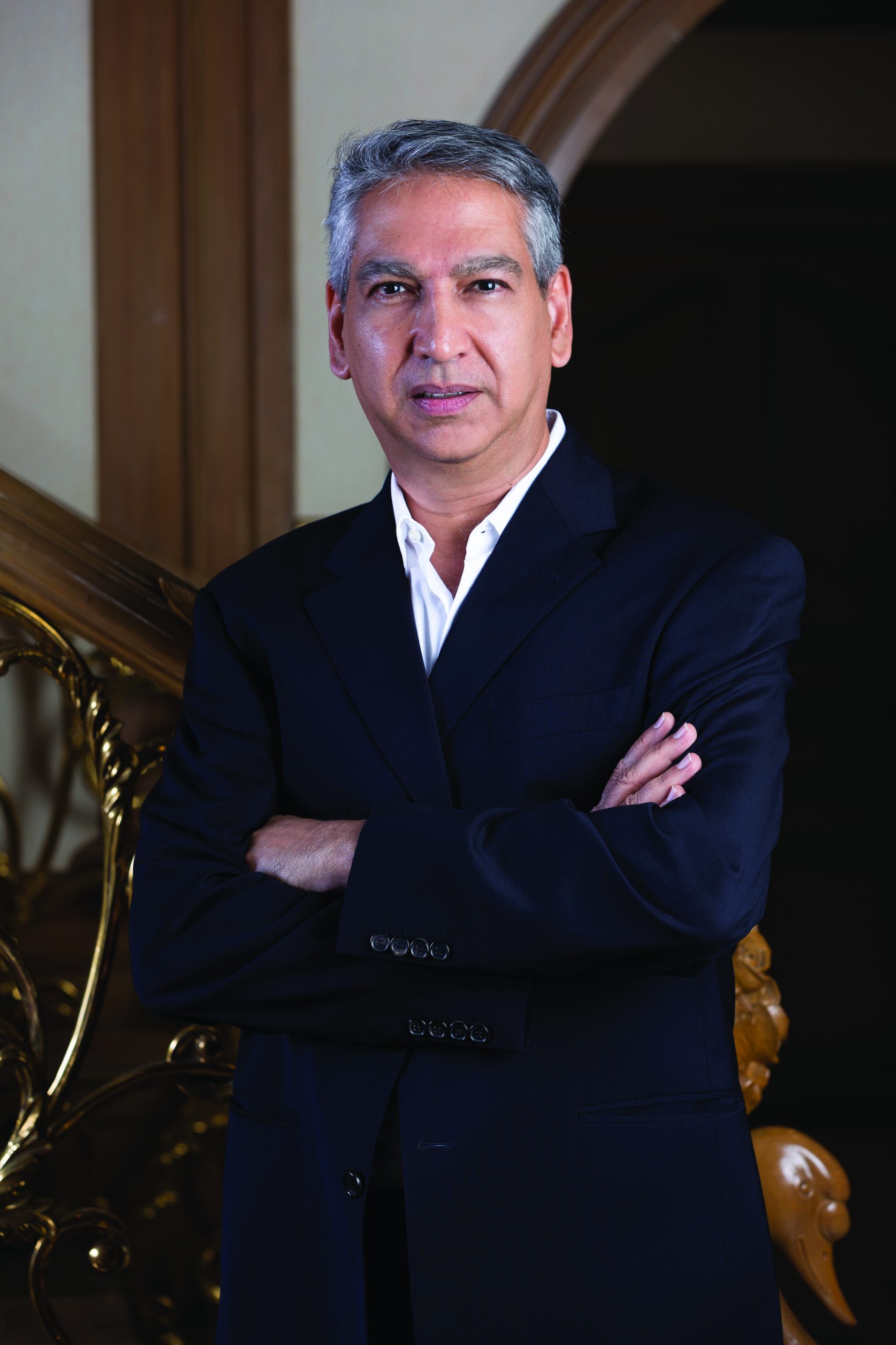
I also had the opportunity to speak to Nash Purswani, the eldest child of the Purswani family. Nash spoke to me candidly of his appreciation of the bonds that his father had formed, and his own relationships in turn.
“I know all my dad’s friends, and their children comprise most of my friends. And now, for those of them who have young children, my seven-year-old is also becoming friends with their kids. I’m experiencing the best of all age groups now – it’s total bliss!” he tells us with a laugh.
Unlike his father who had come to Thailand without knowing anyone, Nash had clearly grown up ensconced in the Thai-Indian community in Thailand, and I’m curious to know his family’s studied history from his point of view. He gave me his take on his family’s self-made success, as well as his own advice as a discerning businessman in his own right.
Can you briefly describe what role you currently hold in your business organisation?
Ours is a joint family, and we have an Investment Holding company that we siblings –my sister Naina, my brothers Sailesh and Sunil, and I – equally own. We gave up the need to have titles in the Group over 10 years ago, and instead take up positions as Managing
Director, Executive Director, or Director, depending on who is looking after which business or JV.
My role and responsibility is to create new businesses and JVs in the core areas we would like to be in, and I’m also the active Director in a few of the businesses, with a say in policy and strategy. My brothers and sister also assume similar roles in the businesses they get involved in.
Your father has given us a short history of how the Thai Martin Group has diversified a great deal over the years. Will this continue moving forward?
The overall strategy of my father in investing with good partners has not changed over the decades, however our risk appetite has reduced somewhat as we feel that his shoes are too large to try and fit into. It was a great experience going through the various projects and ventures he had aligned with, but we have refocused our energy and funds into four core areas of interest going forward: retail JVs & retail consolidators, agriculture- based businesses, health & wellness investments, and Blockchain ventures. These are four key categories that we feel have a good future.
In this digital age, what advantages/disadvantages do you foresee with the growth of your business?
There have been many changes and improvements in technology and information processing and dissemination, and they will keep evolving at breakneck speed. In my opinion, the Blockchain and Web3 ecosystems being built are one of the largest disruptors to happen to our generation this decade. We make sure to take them into consideration every time we wish to grow an existing venture or make a new investment. Done well and used correctly, they substantially reduce costs, and exponentially create scale and reach. Succinctly put, information is power and money.
Have you and your siblings always assumed that you would be working in the family business, or did you all have intentions to look elsewhere? If so, why did you choose to work for the Thai Martin Group?
Yes, right out of high school, I knew that I, at least, would be tied to these businesses. I would say that my siblings had a better chance of stepping out of the family system than I did. However, we are quite crabby so we like to stick together. [Laughs] Once out of university, my dad gave us the choice of his businesses and asked what we would like to be involved in, i.e. expanding his tailoring retail stores, or working in one of the JV investments.
My father has also been very understanding of our vision for the future, and he’s allowed us to make investments into businesses that would initially have seemed risky. Even today, his ability to ask the right questions and control open risks is still invaluable in our Board’s decision- making process for both traditional and tech ventures.
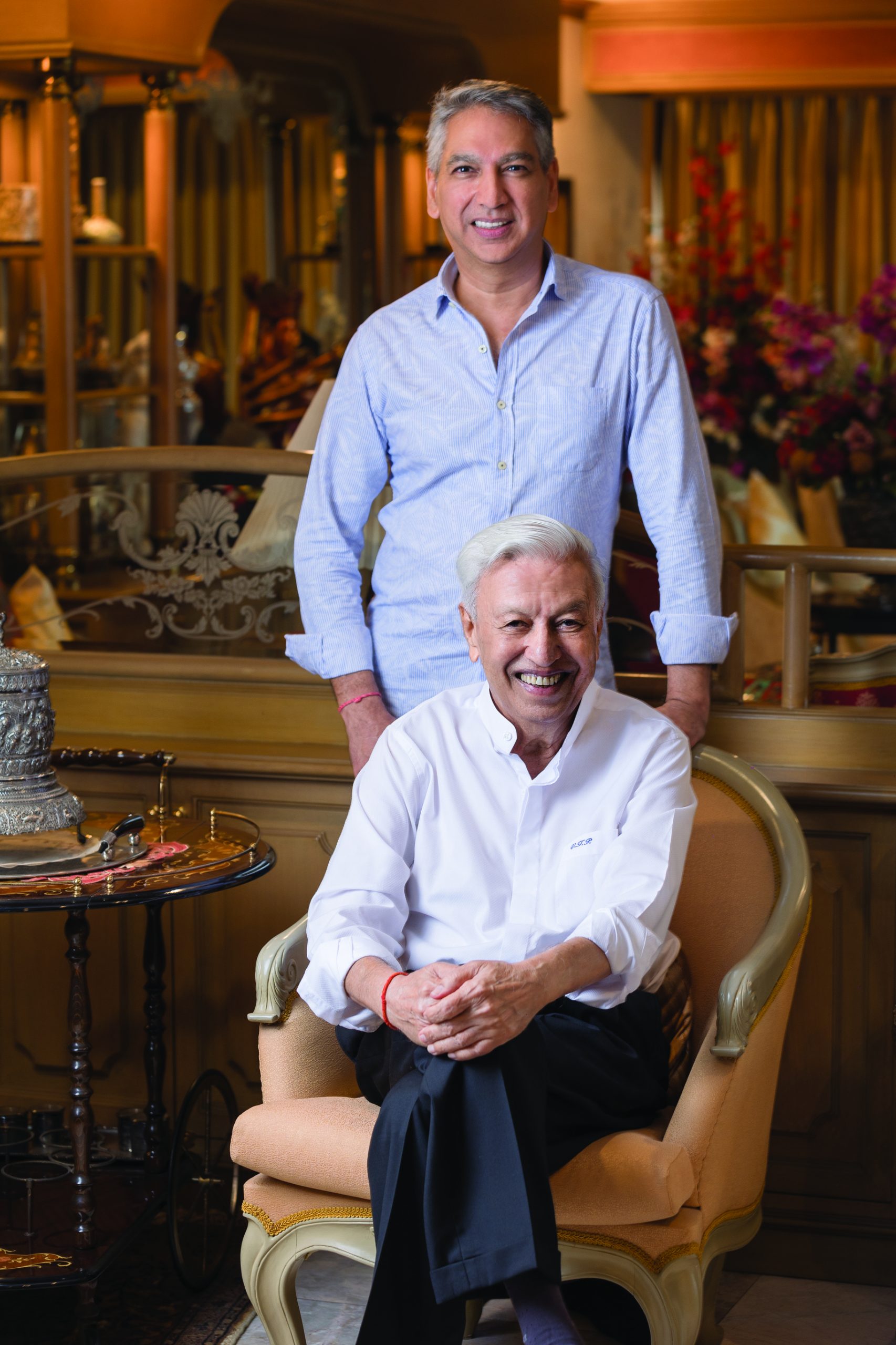
How much of an inspiration was your dad in your and your siblings’ business choices, and how essential was his vision in guiding all of you?
Very essential; we still need his views and vote for every meaningful investment. It is up to us to come up with a business plan, which then goes through a shredding session in our Board meetings. Afterwards, we often have a little ‘back- door politics’ at home to convert family members who voted no. [Laughs] It’s a lot of fun if one doesn’t take everything to heart and if the project owner doesn’t have an ‘I-must-win’ attitude.
However, I must say that although we’ve all been taught growing up that the best mentors are your parents, your parents’ friends, your relatives, or your best friends, I feel like that isn’t true at all. We’ve been fortunate that Dad has been a total inspiration as a man with true entrepreneurial spirit, family values, and strong friendships, but in my opinion, everyone needs to look outside for mentorship.
The biggest gift I can give to anyone, young or old, is to tell them to look for mentorship by checking out Mindvalley University’s discussion platform. In my humble opinion, this is a pre-requisite to becoming a mindful and successful individual, be it in services or business. Some of my biggest failures, and the loss of so much money that could have been saved, has been because I could not identify the right mentors 30 years ago.
Do you feel like the generation gap between your dad and you has affected the development of the company?
Definitely not, as his network of friends and his own lead has often given us the impetus to explore certain project viabilities. Till today, we still bombard him with new business ideas and thoughts that he is still receptive to learning about. His various board positions from both the past and present have given him a lot of insight and experience in guiding our thoughts and direction. He never stops learning, which is something I believe no one should do.
What higher aspirations or goals do you have as a family, and in your personal and professional life?
The next generation are only a handful, with three members in their teens, but I’d say we are quite content in what we have built as a foundation for them. It’s so important to get into JVs with partners who are specialists in their field, and passionate about what they do. Each business that we’ve laid the foundation in today has the wings to grow organically and bring new opportunities in their respective categories – we are notpushing anything new aggressively.
Personally, I’m enjoying my newfound freedom of not being bound in an office, which has allowed me more time with the family, as well as the time to start new projects, and learn about the Blockchain universe in-depth.
What do you feel is the greatest contribution or achievement of your family and Group?
My father can proudly talk about the number of big achievements he has had over his professional and social life; however, I feel that for my siblings and I, our contributions are less grand and more behind-the-scenes. We have done our bit in contributing towards charities, creating jobs, helping friends in need, and working towards a cleaner environment. These days, we consciously try and invest in businesses that can help people get healthier, clean up the environment, and hopefully one day, get the younger generation to think more creatively and succeed in their future.
I think our largest contribution to this society and Thailand going forward will be our involvement in helping complete the Maha Kali Temple in Chaiyaphum province. This temple will be unique in many respects, from its aesthetics, to its energy, to the technology used to make it a true temple of worship to help those in need of a higher power.
Finally, what does the future hold for your family members and the Group?
So much! We’re very excited to be living in an era with massive changes across a range of industries, from the food chain, to health and medicine, technology, andfinance, to name just a few. I give two thumbs up to this generation of young adults, who are rewriting the rules of the game, and making changes to archaic and established ways.
Our responsibility now is to build a good foundation for the next generation of our family and invest what we can into new ventures that we feel have the same vision and sense of responsibility in giving back to the community and planet.



